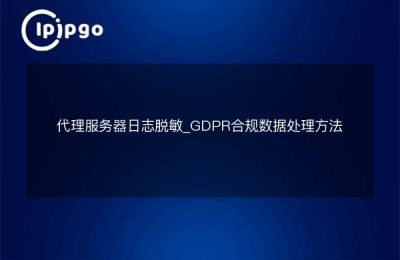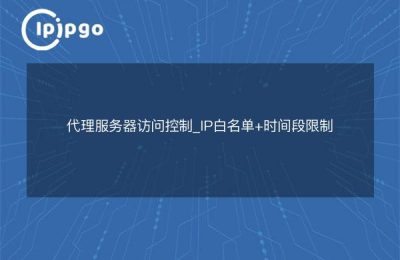
Does the proxy server log real IPs?
When using a proxy server, many users are concerned about one question: Will the proxy server record my real IP address? The answer to this question is not a simple yes or no, but depends on a number of factors, including the type of proxy, the service provider's privacy policy, and the user's usage. This article explores this question in more detail.
1. Types of proxy servers and privacy protection
Proxy servers are divided into the following main types, each of which behaves differently in terms of recording a user's real IP:
1.1 Transparent agents
Transparent proxies do not modify the user's request in any way, and the user's real IP address is passed directly to the target website. When using a transparent proxy, the target website can easily recognize and record the user's real IP address; therefore, transparent proxies do not provide privacy protection.
1.2 Anonymous agents
Anonymizing proxies hide the user's real IP address, but may log the user's IP under certain circumstances.For example, some anonymizing proxies may keep the user's IP in logs for ease of administration and maintenance. Although the target website cannot see the user's real IP, the proxy service provider may still log this information.
1.3 Highly anonymous proxies
Highly anonymous proxies do not reveal the user's real IP address to the target website, nor do they add any identifying information to the request. This type of proxy is usually considered to be the most secure and effective in protecting the user's privacy. However, whether or not the user's real IP is logged still depends on the privacy policy of the proxy service provider.
2. Privacy policies of proxy service providers
The handling of user data may vary from one proxy service provider to another. Below are some common privacy policies:
- No log policy: Some proxy service providers promise not to log any user activity, including real IP addresses and access logs. This policy is usually considered the safest option.
- Limited logbook policy: Some proxy services may record a user's IP address and access times, but not the specific content of the access. Such policies may have some privacy implications.
- Comprehensive logbook policy: Some proxy service providers may record all user activities, including real IP addresses and access logs. In this case, user privacy protection is virtually non-existent.
3. Users' access patterns
In addition to proxy types and service provider policies, the way users use them can also affect the level of privacy protection. For example:
- Whether or not to log in when using: If a user logs in to a website while using a proxy, the website may recognize the user by other means (e.g. cookies), even if the real IP is hidden.
- Content of data transfer: If a user transmits sensitive data (e.g. login information) through a proxy, the data itself may be intercepted even if the IP is hidden.
4. How to choose a secure proxy service
To ensure privacy protection, users can consider the following points when choosing a proxy service:
- Selection of highly anonymous agents: This type of service usually has better protection for the user's real IP.
- View Privacy Policy: Read the service provider's privacy policy carefully to ensure that it promises not to record user activities.
- Access to user evaluations: To understand the reputation of the service provider and the effectiveness of privacy protection through the reviews of other users.
5. Summary
Whether a proxy server logs real IPs depends on a number of factors, including the type of proxy, the service provider's privacy policy, and the user's usage style. In order to protect personal privacy, users should consider carefully when choosing a proxy service and ensure that they choose those that offer high anonymity and no logging policy. We hope this article will help you better understand the privacy protection mechanisms of proxy servers and make your online activities more secure!








